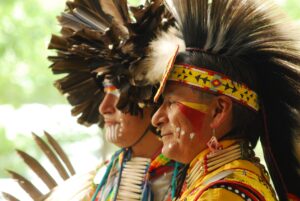Cowichan Tribes is entitled to claim privilege over information that their Lands and Governance Director learned from Cowichan Elders during Treaty Committee meetings and during his involvement in a project-specific traditional land use study. The public interest in reconciliation through good faith treaty negotiations and the duty to consult favours case-by-case privilege in this case.
This matter is in regards to an Aboriginal title and rights case, where the testimony of Mr. George, Lands and Governance Director for Cowichan Tribes, was questioned on communications that was learned of during Cowichan Tribes Treaty Committee meetings and related to traditional use interviews, over which the plaintiffs claim privilege. The Treaty Committee meetings were held to advise on Cowichan Tribes’ approaches to treaty negotiations and the pursuit of Aboriginal rights and title. Cowichan Tribes was advised on strategic use of oral history information including oral histories shared at Treaty Committee meetings.
In establishing confidentiality at common law, the Supreme Court of Canada first adopted the Wigmore’s four criterion in Slavutych v Baker, [1976] 1 SCR 254: 1) the communications must originate in confidence that they will not be disclosed; 2) this element of confidentiality must be essential to the full and satisfactory maintenance of the relation between the parties; 3) the relation must be one which in the opinion of the community ought to be sedulously fostered; and 4) the injury that would inure to the relation by the disclosure of the communications must be greater than the benefit thereby gained for the correct disposal of litigation. The party seeking to protect the communication from disclosure must demonstrate that the authors of the communications possessed expectations of confidentiality (Northwest Organics, Limited Partnership v Roest, 2017 BCSC 673 [“Roest”]; Yahey v British Columbia, 2018 BCSC 123 [“Yahey”]).
The plaintiffs submit that the communications were made during these confidential Treaty Committee meetings which were conducted with an expectation that the information would not be disclosed. Confidentiality is essential to Cowichan Tribes’ relationship with its members and its ability to ask knowledge holders and Elders to share information about traditional use. This relationship of trust is essential to Cowichan Tribes’ ability to engage in good faith consultation with the Crown. The Cowichan community view this relationship as one that should be sedulously fostered. Allowing disclosure of the contents of the interviews in the litigation would undermine the constitutionally protected process while having minimal benefit to the disposal of this litigation.
The court in Roest held that the Wigmore criteria are not “carved in stone” but are a “general framework within which policy considerations and the requirements of fact-finding can be weighed and balanced on the basis of their relative importance in the particular case” (Roest; R v National Post, 2010 SCC 16). Case-by-case privilege may restrict disclosure where Wigmore’s four criteria for establishing confidentiality at common law exists. Those criteria seek to balance the protection of confidential communication with the public interest in the correct disposal of litigation (P(V) v Linde, [1996] 2 WWR 48).
The Wigmore criteria have been applied to preserve the confidentiality of interviews with Elders and community members undertaken in the course of traditional use studies (Yahey). These criteria must be applied to such interviews in a manner sensitive to the unique legal and constitutional context of the duty to consult, which is underpinned by the honour of the Crown and reconciliation, and involves reciprocal duties on the Crown and First Nations to participate in good faith in the consultation process. This application must also be viewed in the context of the Crown’s constitutional duty to consult and deal honourably with First Nations. This context includes Cowichan Tribes’ reciprocal duty to “express its interests and concerns regarding potential impacts to its rights, and to consult in good faith” and recognition of the fundamental importance of reconciliation between the Crown and First Nations in this process (Yahey; Mikisew Cree First Nation v Canada (Minister of Canadian Heritage), 2005 SCC 69).
In this case, the four Wigmore criteria for case-by-case privilege are met. The plaintiffs are not evincing an intention to rely on, or benefit from, the evidence they claim to be privileged. They are not seeking to adduce evidence about the substantive content of the Treaty Committee discussions. Nor do they seek to rely on the substantive content of some interviews conducted while shielding other interviews from disclosure. Rather, they adduced evidence of oral history from other sources. The question of what Mr. George learned in Cowichan Tribes Treaty Committee meetings regarding oral history of Cowichan Tribes Elders about fishing on the Fraser River is disallowed as the answers it would elicit are privileged.


